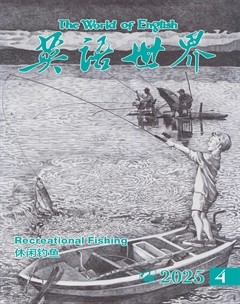IN 2013 PAUL SALOPEK, an American journalist, began a trek around the planet. His aim was to follow Homo sapiens’ first migration, out of Africa, across the Middle East and Asia, by boat to Alaska, then down to Tierra del Fuego at the southern tip of the Americas, the place humans arrived last, around 8000BC. He called it the “Out of Eden” walk. He guessed it would take seven years. Eleven years later, he is still walking.
2013年,美国记者保罗·萨洛佩克开始徒步环游世界,以此重寻智人流散世界的踪迹:从非洲出发,穿越中东和亚洲,乘船前往阿拉斯加,再南下美洲最南端的火地岛——那是人类公元前8000年前后最终抵达之地。保罗称此行为“走出伊甸园”,当初预计需要7年。然而,11年之后,他仍在行走。
Mr Salopek has trekked across deserts and mountains, river plains and cloud forests, along pilgrim paths and ancient trade routes, in the footsteps of Alexander the Great and Mao Zedong. He has been shot at in the West Bank, held up by Kurdish gunmen, detained for two days and deported from Pakistan, and stopped by police so often that he logs these encounters on a “freedom of movement” map. He has led camels and mules and pack horses across the Arabian sands and Central Asia’s endless steppe. He buried caches of water at 25km intervals to traverse the Kyzyl-Kum desert in Uzbekistan, got caught in a snowstorm in the Pamir mountains and helped a man who had severed his leg in a rockslide. “The man was so cheerful, he was making jokes as we tied a tourniquet.”
萨洛佩克先生跋山涉水,穿荒漠,越云林。他踏上过朝拜之路、古时商道,也曾重走亚历山大大帝的征途、毛泽东的征程。他曾在约旦河西岸遭到枪击,曾被库尔德武装分子劫持,曾在巴基斯坦被拘留两日后递解出境,还曾在屡遭警察盘问时戏称此类遭遇为“行动自由”之境。他在骆驼、骡子和马匹的陪伴下,横穿阿拉伯沙漠和中亚广阔的草原。在乌兹别克斯坦的克孜勒库姆沙漠,他每隔25公里就埋备饮用水,方得穿越。在翻越帕米尔高原的山脉时,他曾困于一场雪暴。他还帮助过一个因落石而断腿的男子:“这家伙太乐观了,在我们给他系止血带时,竟然还开玩笑。”
Mr Salopek halts often to write and explore.
萨洛佩克先生徒步过程中,经常驻足写作,思考探索。
He says his walk “is not an expedition”, but a way of slowing down to collect stories, “like beads on a string”. He has written several hundred thousand words so far, about archaeological digs and vanished civilisations, about industry and craftsmen, pollution and conservation.
他说他的徒步“不是远途探险”,而是漫步采风,“那些故事像一串珠子”。他迄今已经著文数十万字,写考古发掘与逝去的文明,写制造业与手艺人,亦写污染与环保。
Mr Salopek is an ascetic; he owns almost nothing but the clothes on his back and the tools of his trade: laptop, mobile phone, camera. He has no home and little money. Out of Eden is a non-profit; his “salary” goes into a back-up account for operational expenses. “We are often in the red.”
萨洛佩克先生是位清苦的行者,除了背包里的几件衣服和记者行业的必需品——笔记本电脑、手机、相机——以外,他几乎别无所有。他没有房子,钱也不多。“走出伊甸园”是个非营利项目,他的“薪水”都存在一个储蓄账户里,用于运营开支:“我们老是捉襟见肘。”
His wanderlust was inculcated in childhood. In 1968, when he was five, his father moved the family to a small village near Guadalajara in Mexico. He and his four older siblings grew up among poor farmers and went to local schools. “My Dad was a bit like the father in ‘The Mosquito Coast’,” he says, referring to a novel and film about an American who grows disillusioned with consumerism and seeks a simpler life in Latin America. After graduating from the University of California, he did various jobs: farm hand, cowboy; shrimper, gold miner.
童年时期,行走四方的宏愿便深入其心。1968年,保罗5岁,其父带全家移居墨西哥瓜达拉哈拉附近一个小村落。他有俩哥俩姐,周围全是穷苦农人,他们都上当地的学校。“我爸爸有点像《蚊子海岸》里的那位父亲。”他指根据同名小说改编的那部电影,讲一位美国人对消费主义失望至极,遂前往拉美追寻简朴生活。保罗从加州大学毕业后,干过各种工作:务农、牧牛、捕虾、淘金。
He went on to win two Pulitzer prizes. One was for writing about the human genome. (“Basically, we are all the same,” he concluded.) The other was for covering a gigantic war in Congo, where combatants firmly believed we are not all the same; that the tribe next door are the enemy. After a decade in Africa, he decided to change the way he wrote about the world; to focus on ordinary people who live away from the headlines but whose stories illustrate big issues.
后来,他两度获得普利策奖。





